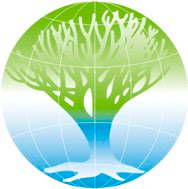Publication of the EMHRN 2010 Report on Freedom of Association in the Euro-Mediterranean Region: A Threatened Civil Society
Copenhagen – 31 October 2010: At the Occasion of the Euro-Mediterranean Human Rights Network’s Freedom of Association Working Group meeting, held in Beirut, Lebanon, last 30-31 October, the EMHRN launched its fourth annual Report assessing the situation of NGOs in the 11 countries of the East and South Mediterranean region[1] and in Europe since the publication of the first EMHRN Report in 2007.
A close examination of recent developments in the Euro-Mediterranean region reveals that freedom of association has experienced setbacks in the past few years and there has been very little positive development worth mentioning.
Since 2007, some countries have amended their laws on NGOs (
These developments have left human rights activists in a deplorable situation, marked by physical and psychological attacks, smear campaigns and restrictions on the freedom of movement of many activists in a number of countries of the Eastern and
On a brighter note, the EMHRN had recently the opportunity to welcome a United Nations Human Rights Council’s Resolution, adopted on September 2010, appointing, for a period of three years, a Special Rapporteur on the rights to freedom of peaceful assembly and of association as it believes a clear political commitment is now needed to fully implement the international standards to freedom of association in the MENA region.
Similarly to the previous reports, this fourth Report also includes recommendations aimed at the 11 East and South Mediterranean countries as well as at the institutions of the European Union in the context of their relations with states of the
The new EMHRN Report is available on the EMHRN website at: http://en.euromedrights.org/index.php/publications/emhrn_publications/68/4758.html
[1] Algeria, Egypt, Jordan, Israel, Libya, Lebanon, Morocco, Occupied Palestinia Territories, Syria, Tunisia, Turkey



No comments:
Post a Comment